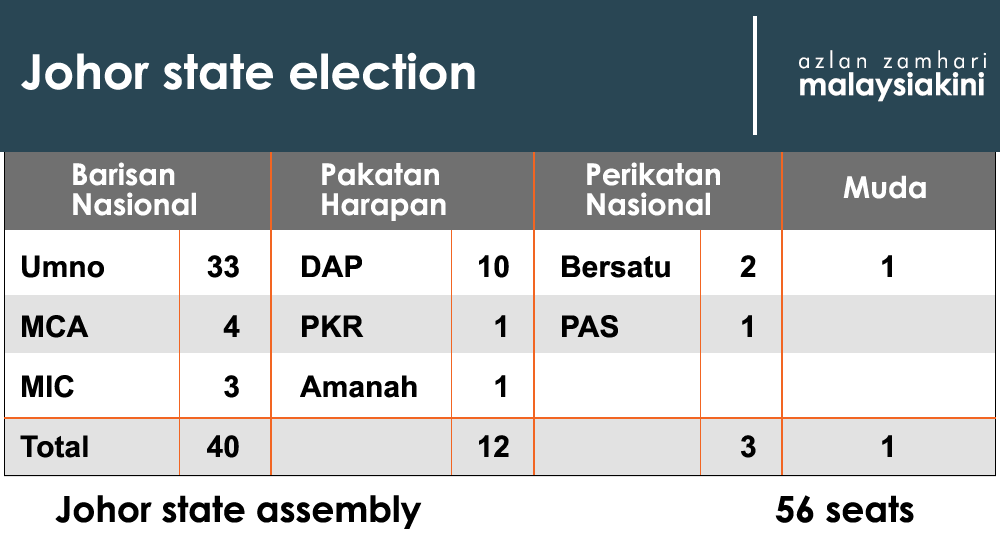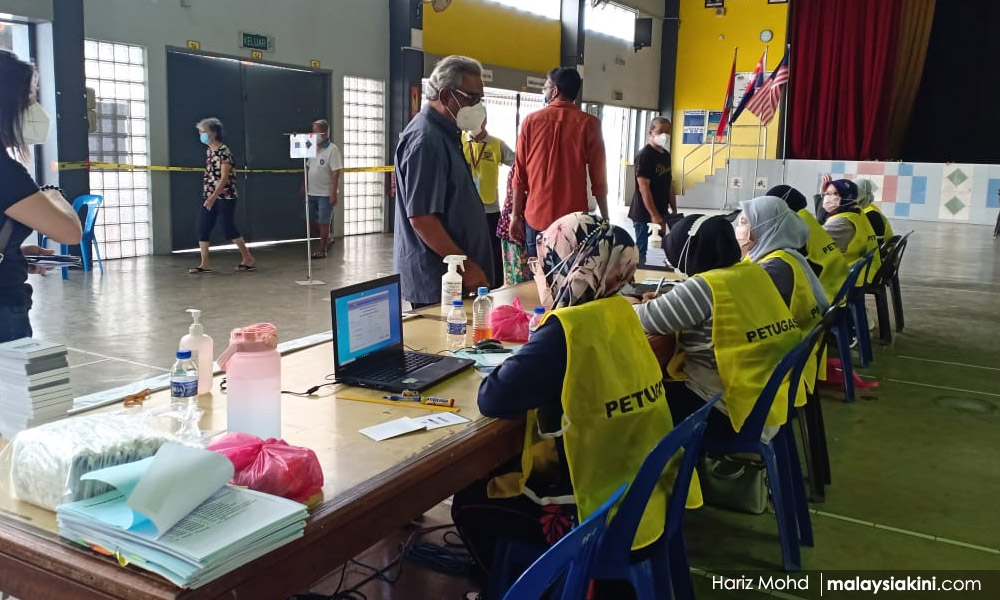JOHOR POLLS | As the dust settles on the Johor state election yesterday, Amanah president Mohamad Sabu said the outcome of the election should serve as a lesson to the opposition bloc.
Mohamad (above) pointed to disunity among opposition parties as one of the reasons for BN’s victory.
“To me, the results show that BN has not grown its strength, but instead benefited from clear divisions among the opposition,” he said in a statement today.
He pointed out that in terms of ballots cast throughout the state, non-BN parties collectively have nearly 200,000 more votes than BN.
“With those 200,000 votes, if divided evenly across 56 constituencies, opposition parties could overcome BN with a nearly 4,000-vote majority.
“This is a lesson for us all on how we should close ranks and strategise together to confront the looming 15th general election.
“Thus, I wish to remind all parties that if we continue to be disunited in facing BN, we will all lose the general election en masse as a result,” he said.
BN had won 43 percent of the ballots cast at yesterday’s election, but because of Malaysia's first-past-the-post system and other flaws in the electoral system, the coalition managed to secure 40 out of 56 seats (71 percent) of the Johor assembly.

Pakatan Harapan and its ally Muda managed to secure 30 percent of the ballots, while Perikatan Nasional won 24 percent.

Mohamad had championed the “big tent” strategy before.
In the run-up to the Johor election, and after Harapan’s poor showing at the Malacca and Sarawak elections, he reminded that a united opposition front was what secured Harapan’s success at the 14th general election.
Poor turnout ‘ main factor’
Mohamad also blamed the poor turnout yesterday as “the main factor” for Harapan’s defeat, particularly among Chinese Malaysian voters.
“This factor has caused Harapan to lose in its strongholds in mixed seats,” he said.
In a separate statement, PKR president Anwar Ibrahim also voiced concern about the low turnout.
“We are worried about the turnout rate that is heart-breaking and could threaten the democratic process […]
“The result is also a clear reminder for political parties to gather their strength to face the general election,” he said.

The voter turnout yesterday was a mere 55 percent, compared to 83 percent in Johor during the 2018 election.
However, it should be noted that the number of ballots cast at yesterday’s election is only slightly lower than those in 2018, at 1.5 million versus 1.43 million respectively.
The apparent sharp drop in voter turnout is in large part due to an expanded voter base after the Undi18 laws came into effect. This automatically registers all citizens above 18 years old as voters. - Mkini



No comments:
Post a Comment
Note: Only a member of this blog may post a comment.